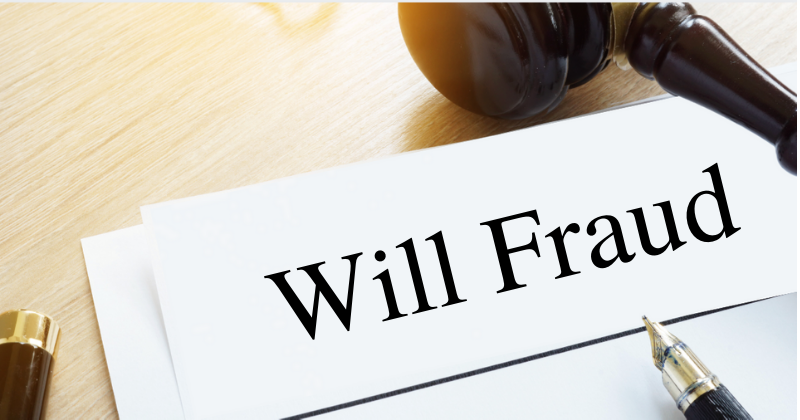
Illinois laws concerning probate procedures and execution of wills are intended to prevent fraudulent behavior. However, will fraud unfortunately does occur. Family members or others need to be prepared to recognize and combat fraud in wills. Anyone can contest a will based on fraud, provided they can prove they are an interested person who is impacted by the contents of the will. Only interested persons can challenge a will in court. To be an interested person, you must be someone who is impacted by the provisions in the will, such as inherit assets if there is no will or would be a beneficiary in the current or a prior will.
Fraud has a very specific legal meaning. Fraud is a legal term that refers to deceptive illegal practices. Someone commits will fraud when they intentionally misrepresent the truth and cause another person to suffer losses because of that fabrication.
1. Fraud in Will Creation
Fraud could occur when someone is creating the terms for a will, and are given false or misleading information about the terms, of the will, the beneficiaries or other important facts relevant to the will. Working with an experienced estate planning attorney is a safeguard against fraud in will creating.
2. Fraud in Will Execution
The execution of a will may also be fraudulent. If someone forges the signature of the person executing the will or misleads them on the content or intentions of the document they are signing. Having a will prepared by an estate and wills attorney can help prevent fraud in will execution.
3. Fraud in Will Administration
A will that is drafted and legally executed and follows the wishes of the person creating the will can be fraudulent in how the will is carried out. The executor of the will or personal representative could take deliberate actions to decrease the value of the estate to the beneficiaries or a family member could hide or destroy a will that diminishes their inheritance. Recording a will with an attorney can provide protections against fraud in will administration.
Contesting a will and proving will fraud can be a difficult and sometimes costly legal process. If you believe a will is invalid and that you have standing, consulting an experienced probate, trust and estates attorney in Chicago or Lombard can give you advice and discuss your legal options. Contact the Estate & Probate Legal Group at 630-800-0112.